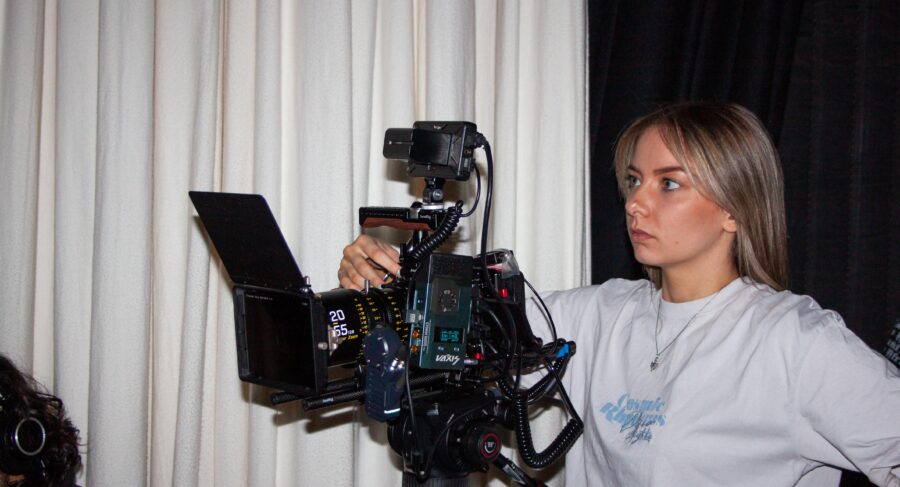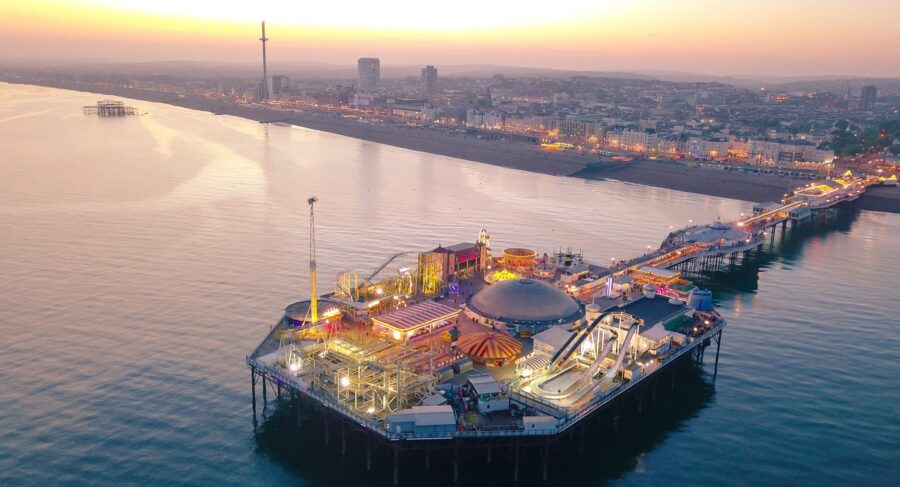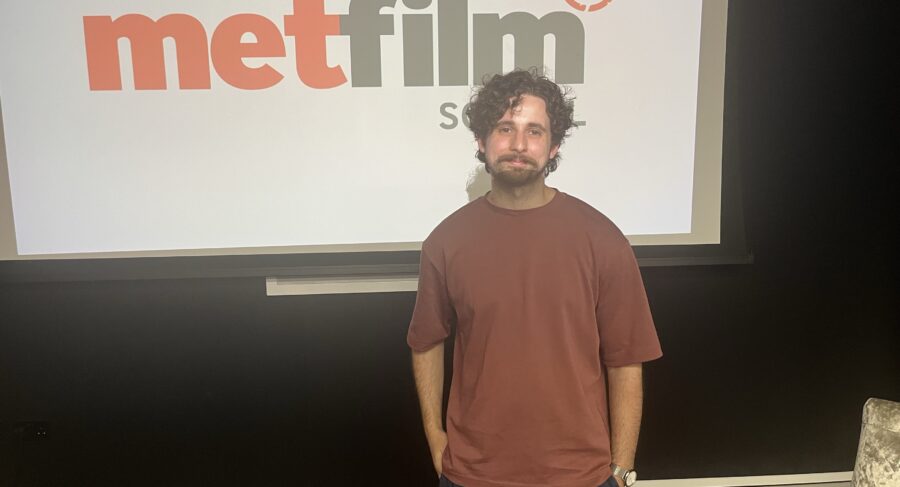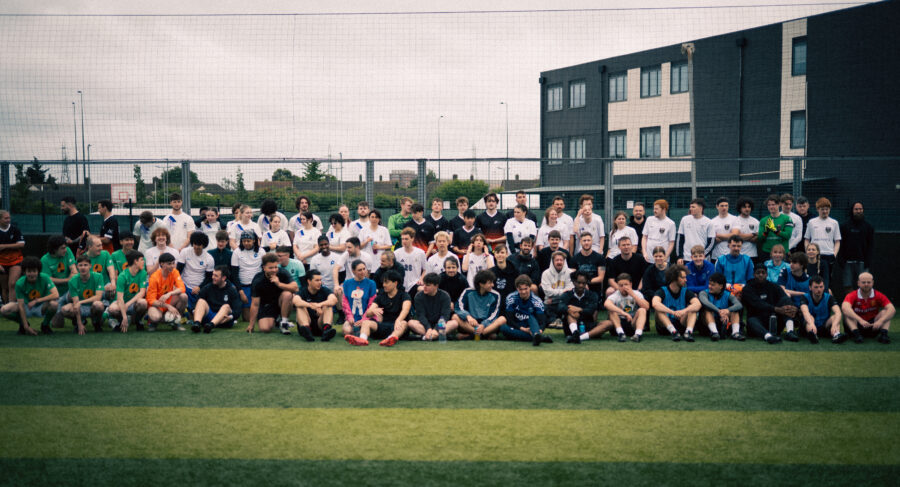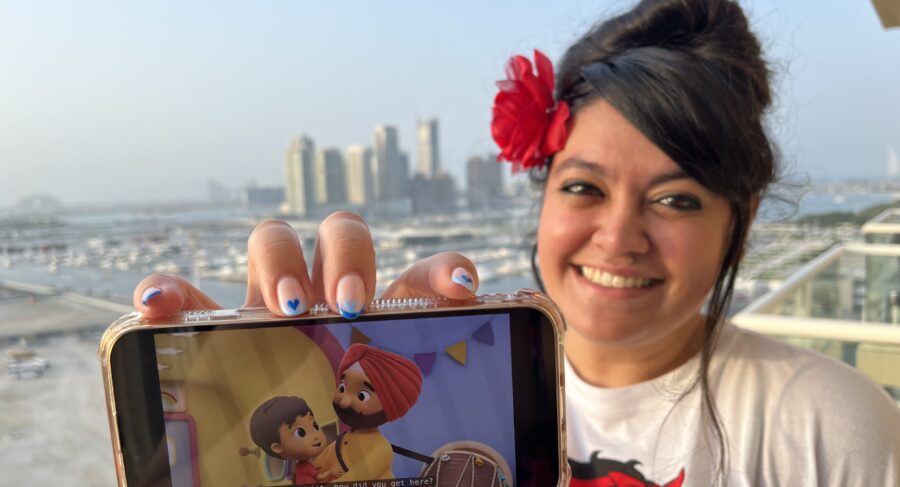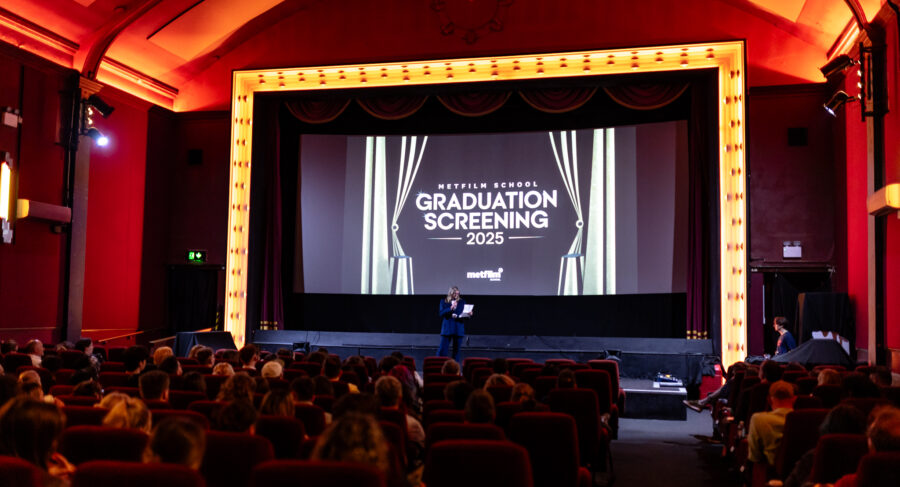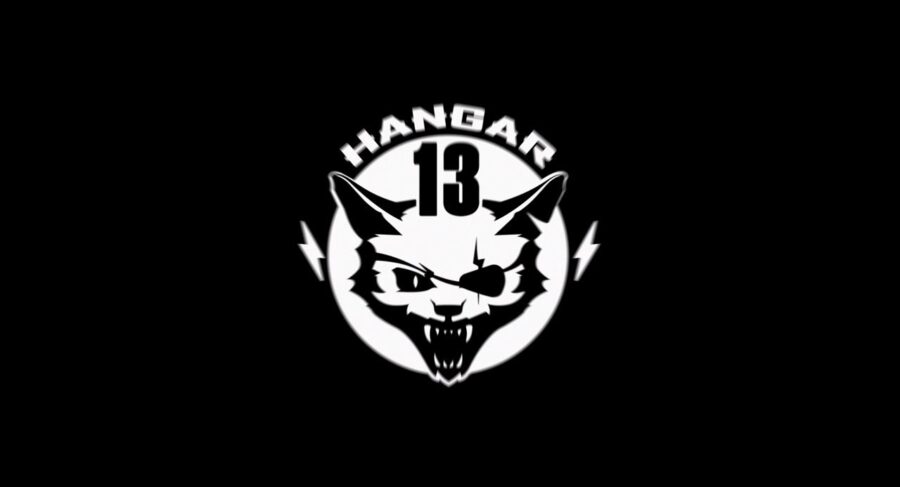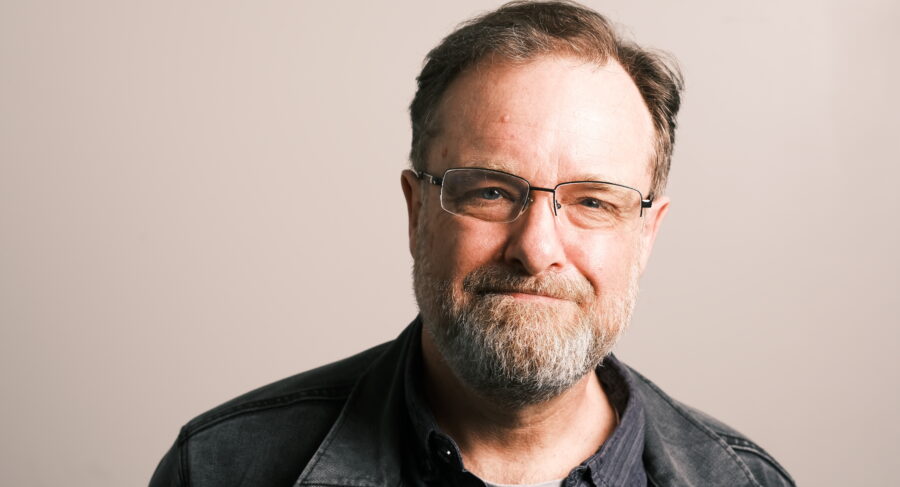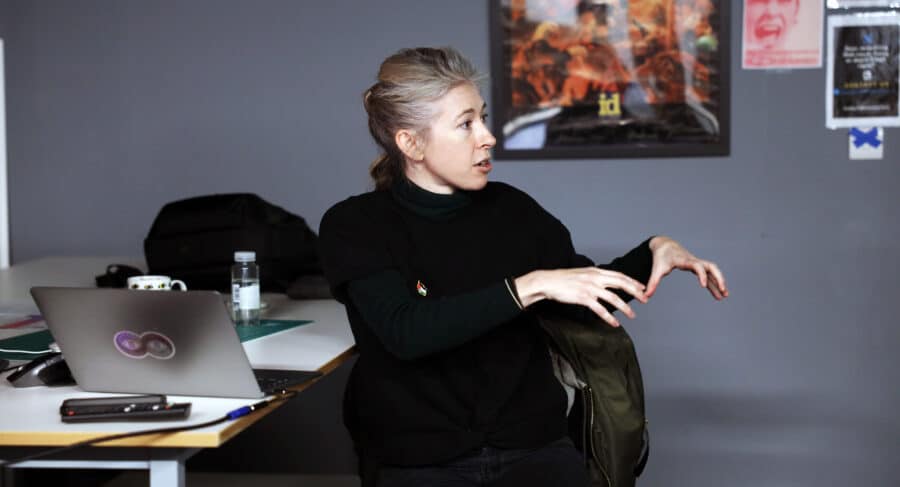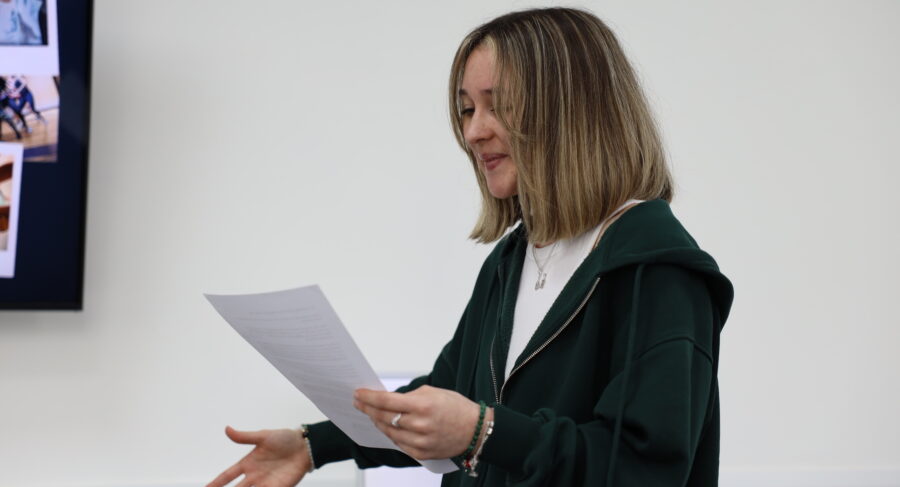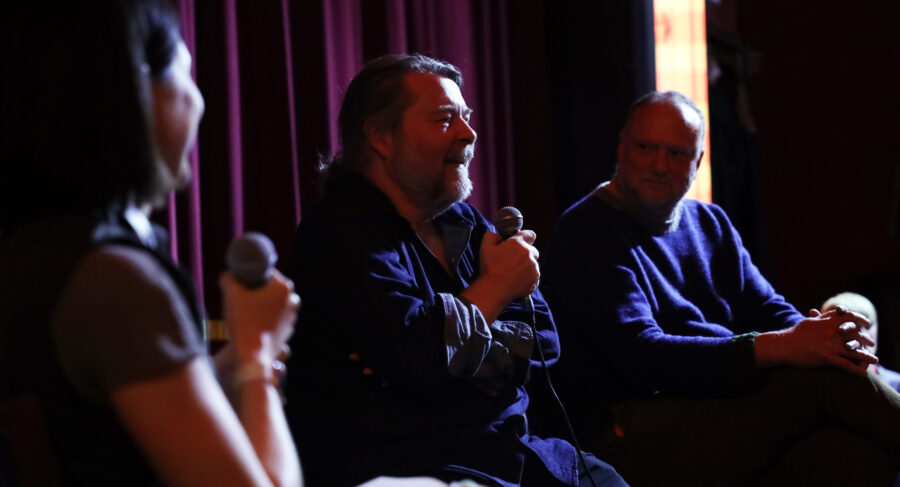Revisiting ‘White Riot’ with documentary filmmaker Rubika Shah
By Elise Czyzowska
23 March 2023
In 2019, Rubika Shah released White Riot, a feature documentary following the 1976-82 Rock Against Racism movement. Created in response to the rise of racism in the UK, against a backdrop of increasing support for the far-right National Front, Rock Against Racism was responsible for multiple protests, marches, and most famously, their 1978 Victoria Park carnival, which saw performances by The Clash, Steel Pulse, and more.
As The Film Stage‘s review of the film explains, White Riot acts as a ‘thrilling look at punk’s influence on politics’ during this time – and the feature saw success on the 2020 festival circuit, winning the Grierson Award for Best Documentary at London Film Festival, as well as receiving a Special Mention at Berlinale.
Last year, Rubika Shah joined our students to talk about the making of White Riot – from the value of starting with a short film, to handling archival footage as a documentary filmmaker. In today’s blog, we’re looking back at our own Masterclass archives to share Rubika’s tips for creating factual content.
Starting with a short film
White Riot, the eighty-minute feature documentary, began as a ten-minute short directed by Rubika, and co-written with Ed Gibbs. Having earned funding from a previously run Film London scheme, the pair decided to take their mutual interest in the Rock Against Racism movement and to explore the story they could tell with it.
Rubika explained that this short film was most helpful in giving the team time to experiment with their narrative style. Acknowledging that they ‘didn’t have the archive needed to carry a feature film’, but also that they ‘didn’t want it to be archive-heavy’, she returned time and time again to the question: How can we realise this story in an artful way?
The solution? To incorporate visual effects, using animation to create 1980s fanzine-esque collages and visuals throughout. ‘Putting photos into borders, and then blending that with animation, drawing on top, we were trying to make it feel really 2D – we were trying to make it feel like paper!’
Released in 2017, the short film was nominated for the Crystal Bear at Berlinale, as well as for the Grand Jury Prize at Sundance, motivating Rubika and Ed – and helping them to secure partners and funding for the full feature documentary.
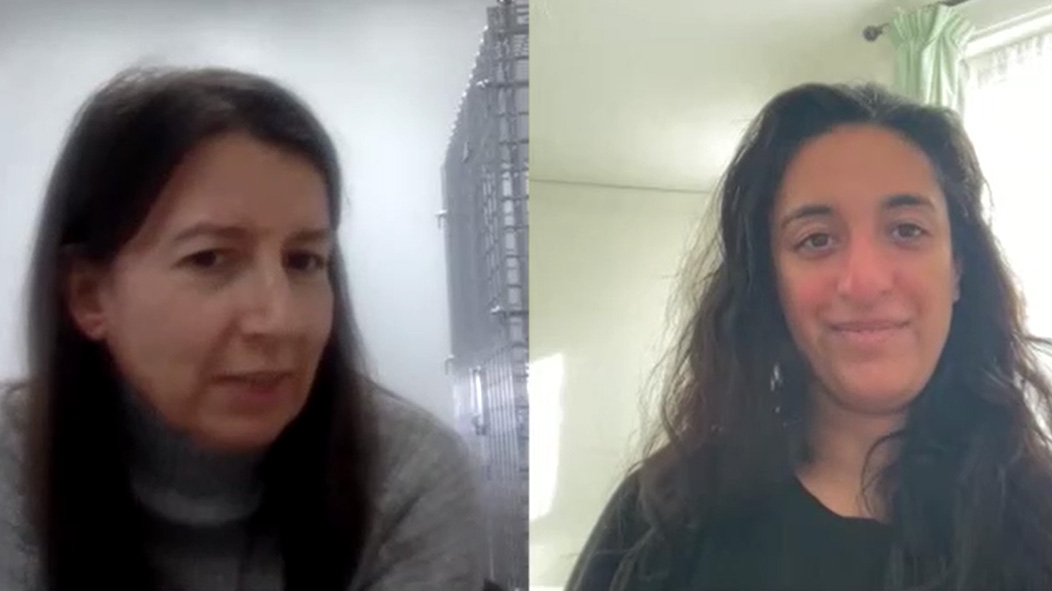
Connecting with your subjects
As any documentary filmmaker knows, the relationship with your subject is a make-or-break-it moment. For White Riot, Rubika spoke about the added difficulty with the Rock Against Racism founders, who had been involved with failed documentaries and projects in the past, ‘which’, she said,’ I think left a scar for them, having put so much effort in’.
To get the most out of your subject, Rubika explained, it’s all about building trust – and typically, this means talking to people multiple times, so that you can get a sense of the emotional beats you need to hit in order to tell their story truthfully.
She added that, for her, this connection comes more easily when the subjects are always kept in the loop. For example, Rubika shared her own investment in the story, which came out of the period’s wider history, and her wanting to tell the story of what was happening for people of colour at this time.
The documentary also featured interviews with some of the bands who performed at Victoria Park – and luckily, the subject matter fell in the team’s favour when it came to getting access. ‘Everyone was really supportive,’ Rubika explained, ‘there wasn’t any drama in trying to get people to talk – the only issue we really faced was schedules!’.
Watch the trailer for White Riot…
Working with archival footage
During this Masterclass, Rubika spent time talking about the process of working with archival footage, from getting clearance to use every source – ‘a nightmare!’, to how she found her narrative threat in the editing room.
I would say, as much as I love archival documentaries, they are really, really difficult.
We had a treatment right from the outset, and we really wanted to tell a narrative story about people, how they change, and how they can create change.
I think the general feel of the film fits that, but it took us a long time to find that in the edit. In hindsight, we probably should’ve watched everything back, and then rewritten the treatment. We just went right in, trying to edit edit edit, sculpt sculpt sculpt. It went in a lot of wrong directions before we got it right.
On the long-winded process of archival clearance, Rubika laughed about how, once the team put together a giant spreadsheet of all their sources, including who owned the rights, who owned the masters (and so on…), ‘it was actually quite liberating!’. Her top piece of advice, then, is to simply start your spreadsheet much earlier on.
Featured in White Riot, watch the archival footage of The Clash performing at Victoria Park, 1978
Rubika Shah’s final advice
From her first concept for the project, to the 2017 short film, and finally, the release of her feature documentary in 2019, Rubika was working on White Riot, in one way or another, for five years. Her final advice for students, therefore, was that ‘if you believe in something, you really do have to keep trying’.
The good thing with documentaries is that there’s an attitude of ‘just go and do it’.
Mark Duplass had a film at SXSW one year, and he said in a speech, ‘the cavalry ain’t coming’. I just think that’s a great quote – because they’re not! You have to go for it, do it for yourself.
- Rubika Shah is the director and co-writer of White Riot, which you can watch on NowTV
- Interested in documentary filmmaking? Explore MA Documentary & Factual, available in Berlin and – starting September 2023 – Leeds.

